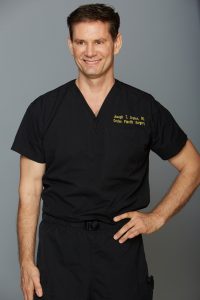Rhinoplasty Consultation and Physical Exam
We have outlined below what you can expect from your rhinoplasty consultation. Read carefully, as there are many suggestions that will save you time, clear up questions, and help you convey to your plastic surgeon what you want to accomplish.
Health History
All cosmetic surgery consultations begin with a thorough health history. This is especially true if general anesthesia is being used but also applies to local anesthesia. Rhinoplasty may be done under general or local anesthesia depending what needs to be done and on the preference of both the plastic surgeon and the patient. Prior to meeting with your plastic surgeon you will be given a health history questionnaire to fill out in the waiting area. There are 5 areas of your health you will be asked about. Be sure to answer it with detail so that your surgery and anesthesia can be optimized for you.
General Health
General health problems are important to discuss so that your surgery is as safe as possible. Be sure to mention any chronic illness. Of particular concern are: high blood pressure, diabetes, heart problems, liver and kidney disease, stroke, cancer, bleeding problems, and wound healing problems.
What will Joseph T Cruise, MD do if I have medical problems?
In short, he will make sure your health is optimized as much as possible to ensure your safety. This may mean referring you to your private physician.
If you have a health problem you can often save yourself time by getting a letter from your private physician prior to your cosmetic consultation stating what the health problem is, how it is being treated, and whether or not you are able to tolerate general anesthesia safely.
If you are seeing any specialist (cardiologist, kidney doctor, psychiatrist, etc. ) be sure to bring a letter from them stating you are able to tolerate surgery.
If you are not able to tolerate general anesthesia it may be possible for your procedure to be done under local anesthesia, with or without sedation. This must be discussed with Joseph T Cruise, MD.
Past Surgical History
On your questionnaire you will be asked about previous surgeries. Be sure to identify any problems you may have had with anesthesia. Of particular concern are previous cosmetic surgeries especially if you do not like the result and are interested in revision. With rhinoplasty it is especially important to mention all previous nasal or sinus surgeries. Previous trauma to the nose is important. If you have traumatic changes to your nose it is helpful to bring in pictures of what you looked like before your injury.
Medications
Be sure to list all medications you take including aspirin and over-the-counter medications. These are important as they may increase bleeding and affect your surgery. It is extremely important to stop taking aspirin and aspirin containing products at least two weeks before surgery. Tylenol is a good alternative. Here is a partial list of aspirin containing products and other products to be avoided prior to surgery.
Allergies to Medications
Information about medications that cause allergies is very important so that these medications can be avoided. Of particular importance is the reaction you had, especially if you had trouble breathing. Be sure to include this information! Nausea is not an allergy but it is important to mention as well.
Smoking, Drinking, and Drug Use
These 3 will certainly affect your surgery and MUST be mentioned so that your surgery can be optimized. Smoking causes a profound decrease in wound healing and will lead to worse scarring and a less favorable result. With large procedures such as a face lift, neck lift, tummy tuck, and breast lift smoking must be stopped at least 3 weeks before and after surgery. Otherwise, the results could be disastrous leading to non-healing wounds, poor scarring, and/or infection. With smaller procedures such as eyelid surgery, nose surgery, breast augmentation, and Liposuction smoking will hurt the overall result but this may or may not be noticeable. In this case smoking cessation is strongly advised but is not mandatory.
Specific Nose Issues
During your consultation you must be very accurate with nasal problems. Of particular concern is a history of breathing problems, sinus problems, nasal drug use, nasal trauma, and any previous nasal surgery. If you had previous nasal surgery, call the surgeons office and have them fax over the operative note. Bring this operative note to your consultation. This is very helpful so that your plastic surgeon can see what has been done. Revision rhinoplasties are challenging because of the scar tissue left by the first operation.
Physical Exam
The key to the nasal physical exam is to determine exactly what is causing the problem. Rhinoplasty is a high finesse procedure and requires that the plastic surgeon knows exactly what you want. If there is a particular nasal characteristic that you like, it is helpful to bring in a picture of someone with this particular feature. Obviously, this look will not be duplicated but it helps convey your wishes.
The specific nasal concerns with rhinoplasty are described in detail in the section on nose anatomy for specific anatomy concerns.


